
NATO’s Allied Land Command (LANDCOM) was established in Izmir, Turkey, on December 1, 2012, and has remained there through the “Gulen Coup” of 2016 and as the US and Turkey in tandem divided up the occupation of northern Syria.
Turkey teamed up with Israel in support of Azerbaijan during its recent war with Armenia and on March 9 Turkish President Recep Tayyip Erdogan publicly embraced President Isaac Herzog: Israeli flags adorned the courtyard of his palace in Ankara, Herzog’s car was escorted by mounted guards and a 21-gun salute was fired during the playing of Israel’s national anthem, Hatikva. Turkey has been providing Ukraine with drones during the current Russia-Ukraine conflict. On April 28, 2022 Edogan visited Saudi Arabia where he met the King and embraced Crown Prince Bin Salman.
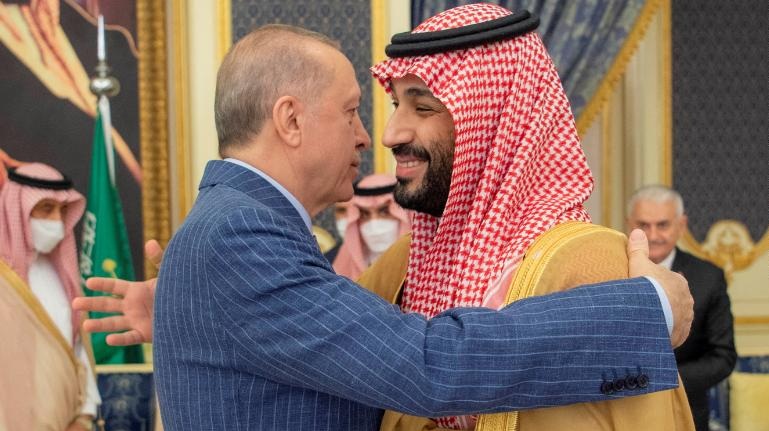
While the US has been unhappy with aspects of Erdogan’s neo-Ottomanist positioning vis-à-vis Russia, including the purchase of S-400s, the opportunity to have an Islamist eastern base for NATO’s land command which can reach out to Ukraine, North Africa, the Middle East, Central Asia and out to the far “Turkic” regions of the Uighurs in China provides opportunities that may be very useful. While centuries ago the Ottoman siege of Vienna ultimately posed a problem for western powers, there is a growing interest in how to evaluate the current state of “NATO’s Ottoman Option.”
In the last seven years, Turkey’s foreign policy has been upgraded through political military economic and diplomatic means. Despite Erdogan’s failure to include the Turkish economy in the first 20 more powerful economies of the world, Turkey in the last years has managed to expand its regional influence in the Eastern Mediterranean, the Caucasus, Balkans and North Africa. This policy, is the result of multilateral agreements with NATO member countries, regarding military expenditures, and also with non-NATO countries, in Africa. In addition, Turkey has maintained a complicated relationship with Russia and has managed to sign economic deals regarding tourism and agricultural exports. Today, Turkey is the only NATO country which maintains contacts with Russia and hosts talks between the opposing sides.
Despite this apparent neutral stance, Turkey was expelled from the F-35 fifth generation jet program and has been strangling to withstand economic and political pressure from the West after the ‘’Gulen coup’’ in 2016. Concretely, in 2021 the Turkish currency lost its value multiple times, a 44% compared to USD, by December 2021, and the inflation reached a high 36%. This created asphyxiating conditions for a large part of the population concerning the prices of basic products. Currently, the inflation of Turkey is affected by the war in Ukraine, like most economies in the region of Eurasia.
However, Erdogan’s government has managed to sell bonds to the central banks of various countries – the latest to UAE 15 billion USD worth, thus stabilizing the economy for the present.
It is also important to note Turkey’s industrial development concerning military production and export. To this day, Turkey has produced a large number of military UAVs with effective results, now tested in several wars. They were first tested in Libya with great success against the forces of General Khalifa Haftar and during the second war of Nagorno Karabakh in the spring of 2020. In addition, they have been used in Syria and these successes, have prompted many countries around the world to buy Turkish UAVs alongside other tactical weapons such as missiles.
In 2019, Turkey signed a deal with Ukraine for the purchase of 42 UAVs and currently Turkey is rumored to supply more on Ukraine’s demand against Russia. Kyiv, has initially purchased around 20 Bayraktar TB2 drones. In addition to Ukraine, the drone company, Baykar, has signed sales deals with several other countries, including Qatar, Azerbaijan and Poland, which in May last year became the first European Union and NATO member state to acquire drones from Turkey. Many other nations have also hinted at buying the UAVs. It is important to note, that in 2021 Turkey and Ukraine had signed a treaty for the co-production of 48 Bayraktar UAVs in Ukraine. Another surprising fact is Turkey’s exports to African countries such as Ethiopia and Niger. Somalia has received Turkish aid as have Ethiopia and Morocco.

Furthermore, the Turkish armament industry is maintaining talks for possible UAV sales to Hungary, Bulgaria, Albania, Kazakhstan, Oman and Somalia. These sales, have also boosted the Turkish economy and its military capabilities. Turkey belongs to the 15 major exporters of weapons globally, amounting to less than 1% of worldwide arms sales.
In this context, the Turkish economy is projected to expand its military capabilities with future buyers in mind, alongside the production of newer strategic armaments such as the development of the new cruise missile, Cakir. The possession of the Russian S-400s still remains a ‘’thorny’’ issue in US-Turkish relations. However, Turkey has provided and is providing the US military with bases on its territory and hosts the headquarters of NATO’s land troops in Izmir. As such, a possible purchase of new F-16s from the USA is quite probable in the near future as a recompense for Turkey’s expulsion from the F35 project. Meanwhile, the U.S. State Department said in a letter to Congress that the Biden administration believes a potential sale of F-16 fighter jets to NATO ally Turkey would be in line with U.S. national security interests and would also serve NATO’s long-term unity. Though the US officials have been trying to ease Turkey’s recent intervention in Northern Irak, the Turkish Foreign Minister, Mevlüt Çavuşoğlu will meet US Foreign Minister Anthony Blinken. Çavuşoğlu said talks on the F-16s were going well and he welcomed reports that the U.S. administration sent a letter to Congress saying the sale would serve U.S. interests and NATO.
Israeli-Turkish relations
Since the death of Turkish sailors of Mavi Matan, on the coast of Gaza by the Israeli Navy, relations between Turkey and Israel have worsened until quite recently. In 2016, Israel, in accordance with Greece and Cyprus and the backing of the US government, agreed to the construction of the ‘’East Med Pipeline’’, a costly and future project which could provide the EU with around 10 bcm of gas per year. This move escalated the relations between the aforementioned countries since Turkey felt excluded. Thus, Greece and Cyprus have signed several defensive agreements and Israel has managed to project its influence in Cyprus. Israel also participated in drills with the Hellenic Air Force in Greece and vice-versa. In 2020, Greece and Turkey notably militarized their economies when Greece purchased arms from France, and Turkey intensified the production and research of UAVs, jets and frigates.
The common depiction of Israel and Turkey as countries on opposing sides, has no factual grounds. During the second war of Nagorno-Karabakh in 2020, Israel which maintains excellent relations with Azerbaijan, alongside Turkey, cooperated in supplying arms to the Azeri military which finally won the conflict. This convergence of interests was not casual, since both countries had interests in the region. Furthermore, Israel already provides energy and gas to Turkey through LNG carriers to the Ceyhan port on the Southern coast of Turkey. Israel’s agreement for the East Med pipeline with Greece and Cyprus, a potential point of conflict, was cast aside with both aforementioned countries. Thus, Greece and Cyprus lacking the diplomatic initiative led to the project being quietly dismissed by the US State Department in January 2022.
Initially, the East Med Pipeline was to begin from the coast of Israel through Cyprus and Greece. However, the plan was costly and caused many frictions between Turkey and Greece in 2020. Additionally, talks between Israel, Egypt and Greece ended with another possible route from Israel to Egypt and then through LNG carriers to Greece. Instead, Israel provided gas to Turkey through Ceyhan port in Southern Turkey. Upon the outbreak of war in Ukraine, US foreign Secretary, Victoria Nuland is insisting that Turkey should be included in the East Med Pipeline project since it is cost effective. Furthermore, Israel provides gas through Turkey from the Leviathan gas fields. This could be possible in the future since many European countries have been building LNG hubs in order to reduce Russian imports.
The focus on gas supply changed again after the Russian invasion of Ukraine on February 24, 2022. This old but escalated conflict drew US attention to the establishment of US energy hegemony over Europe. In this context, the East Med Pipeline project was re-activated and Turkey’s upgraded role within NATO as a -“pillar of stability”- of the Southeastern flank of the Alliance, in general aligned the interests of Israel and Turkey even more. It is also important to note the Israeli and Turkish military presence and alliance in Syria, since they both oppose Assad. On the other hand, Israel has managed to approach the Syrian Democratic Forces in Syria alongside the U.S. Despite this fact, there has been progress between Turkey and the Kurds in Northern Iraq.

Another factor for a Turkey and Israeli convergence of interests is Northern Iraq. Israel, since the first moment, has established cordial relations with President Barzani of the Kurdistan Regional Government in Irbil. Despite Turkey’s military interference in the region, and the apparent neutrality with Iran, Barzani is willing to supply Europe with gas through Turkey. Concretely, on March 28 during the Atlantic Council Global Energy Forum in Dubai, he stated that the KRG will become a net exporter of gas to the rest of Iraq, to Turkey and Europe in the near future. This would also benefit Turkey since it could become an energy hub for Europe. From the Kurdish perspective, Iran has been targeting Irbil since there is Israeli presence in the region. An alternative supplier for Iraq, Turkey and Europe could damage Iran’s economy and diminish its energetic hegemony in this region. Finally, this action could also damage Iran’s economy, already under the strain of heavy sanctions from the West.
Currently, Turkey and Israel seem to be finding a common ground in the Middle East and the Eastern Mediterranean. Turkey on the one hand, has ameliorated its relations with the United Arab Emirates and keeps Qatar as a valuable ally, and Israel, on the other hand, has also re-established relations with the UAE and many countries of the Arabian Gulf. Additionally, they both oppose Assad and they both maintain an apparent “neutral stance” with Russia concerning Ukraine. This apparent harmony, was also expressed in the Nagorno-Karabakh war in 2020.
Consequently, President Herzog’s visit to Turkey on March 9, after 14 years was not coincidental. Despite some arguments regarding the question of Jerusalem’s status as a capital of Israel, the issue has been put aside for the moment. This meeting could be described as historic, since both countries are the most powerful in the region, and an economic, strategic and political cooperation could cement NATO’s control in the region while at the same time minimizing Iran’s and Russia’s presence in the Eastern Mediterranean and in the Middle East.
Despite the neo-Ottoman discourse of Erdogan and a large part of the Turkish elite, Turkey and Israel seem to normalize their relations after a period of mutual disagreements on many issues. Regarding Israel’s apparent alliance with Greece, Benett and Herzog seem to take care of Israel’s influence in the wider region by using Greece and Cyprus. Turkey as a rising industrial power hub in the region with a population of around 84 million, does not wish to be left out of an energy project in the Eastern Mediterranean, hence its presence in Cyprus, Libya and Syria.
Since 2016, Greece and Cyprus, have been approaching Israel and the US government on the issue of the East Med Pipeline and Israel has provided some military equipment to both countries. This was presented by the government-controlled Greek media as a counter measure against Turkey regarding the Exclusive Economic Zone (EEZ) in the Eastern Mediterranean, the Aegean and the coast around Libya.
Greece has utilized the disagreements between France and Turkey regarding Turkey’s policies in Africa and the East Med. Hence, Greece signed in 2021 a defensive cooperation with France after purchasing military equipment worth 5 billion Euros. Nevertheless, all three countries need Turkey in order to keep Iran in check, challenge Russia in its soft underbelly in the South, especially in Crimea and also provide Europe with gas. So far, Greece only managed to concede more military bases for the USA. Without any exchange. Despite, Greece´s and Cyprus´s traditional cordial relations with Russia, they did not mediate between Russia and Ukraine’s conflict unlike Turkey.
During the last NATO summit on March 24 in Brussels, Erdogan was approached by President Emanuel Macron, Joe Biden and NATO’s General Secretary Jens Stoltenberg seemingly in a cordial understanding.In contrast, the Greek Prime Minister was not approached by anyone at the summit. This just confirms the strategic importance of Turkey within the structure of NATO for it’s ‘’intermediary’’ role amidst the war in Ukraine. Moreover, Victoria Nuland visited Cyprus on April 6 and according to President Nikos Anastasiadis, he was asked to proceed with a policy of energy cooperation between Cyprus and Turkey. In other words, the U.S. wants Turkey to be included into the East Med Pipeline.
Finally, Turkish Foreign Minister Mevlut Çavuşoğlu announced that he will visit his Israeli counterpart alongside Israeli PM Naftali Benett. Aditionally, Çavuşoğlu will be accompanied by the Turkish Energy Minister Fatih Dönmez in order to discuss energy cooperation in the Eastern Mediterranean. The Turkish side will also hold meetings with the Palestinian authorities. Despite the recent death of a Palestinian protester close to Al-Aqsa Mosque during the Ramadan festivities, Turkey sees to Israel a reliable partner for energy and political cooperation in the region as the basic pillars of the Euro-Atlantic domination in the area.
Turkish and Russian relations
In order to comprehend these relations, it is essential to know the history of both countries concerning the Black Sea region.
Between the XVI and XX centuries more than eleven wars took place between the Russian Empire and the Ottoman Empire. The complex history of the Crimean Peninsula and the Black Sea region became evident when the Ottoman Empire annexed these multi-ethnic regions and established the Crimean Khanate. During the following centuries, the Russian Empire, as a new power in the region, intended to annex these territories. Thus, until 1774 the region remained Ottoman. After the conclusion of the Russo-Turkish war of 1768-1774 the Crimean Khanate was ceded to Russia as a vassal state until its dissolution in 1783.
In this context, the Ottoman Empire had allied with the Polish Lithuanian Commonwealth and naturally the Crimean Tatars. In Crimea though, there were also other ethnic minorities, such as remnants of Crimean Goths, Armenians, Serbians, Greeks and Jewish Khazars. After the Treaty of Küçük Kaynarca, the Ottoman Empire left Crimea and the Russian ships could pass through the Bosporus Straits, setting a milestone to Ottoman decline and debilitating its position in the Black Sea and the Mediterranean. This treaty was rescinded during the following Russo-Turkish wars but applied in times of peace The currently active treaty of Montreux from1934 followed the lines of the first treaty of 1774.
Today, Turkey as a member of NATO closed the access to the Bosporus for Russian war ships from the Mediterranean, confirming the aforementioned treaties. This demonstrates Turkey’s position regarding the conflict. Certainly, it is not a position of one neutral state towards another. Nevertheless, Turkey did not impose sanctions members against Russia like the other NATO members. This is due to multiple factors: First off Turkey is benefiting as a zone of transition for Russian nationals isolated in Europe. While most European airlines have stopped direct flights to Russia, people can travel from and to Russia via Turkey, and also bypass the harsh banking restrictions currently in place by moving their assets to Turkey.
Furthermore, Turkey is one of the main exporters of fruits and vegetables to Russia. At the same time, Turkey is an affordable and popular destination of Russian tourists during the summers.
While these treaties and commerce between the two countries are active, it is also important to note the influx of Russian oligarchs who face sanctions in Europe. Turkey, is the ideal destination since the sanctions can barely affect them in Turkey. Roman Abramovich is a prominent example who lately has been acting as an intermediary of Russia and Ukraine in Turkey. At the same time, Russian capital is concentrating in Turkey benefiting the Turkish economy and strengthening its future position.

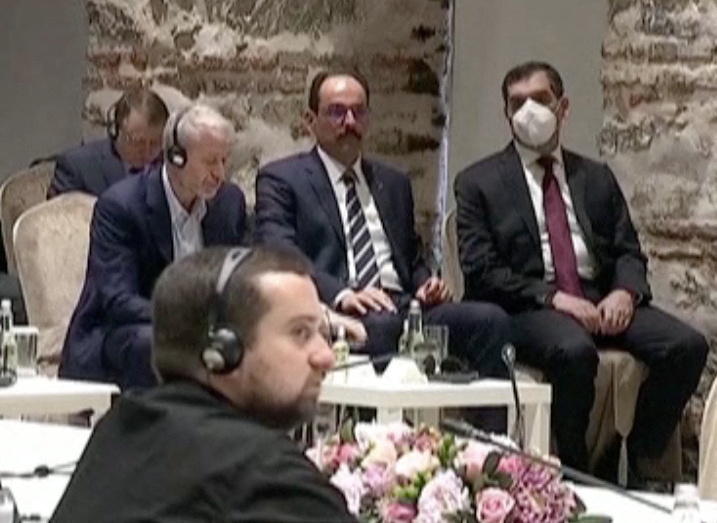
The discontent of many oligarchs with Putin is evident. Many of them, such as Oleg Deripashka, Roman Abramovich and Friedman, among others, have expressed their discontent on social media. This, comes to no surprise since many of them have their fortunes affected by US and European sanctions. The fact that some oligarchs have decided to stay out of Russia’s reach could be a detrimental factor in the fate of Russian politics. This seems, however, rather unlikely at the moment, with President Putin’s approval rate being close to 83%.
Currently, Roman Abramovich has been spotted with his luxurious yacht ‘’Ecliplse’’ in Turkey and he is planning to stay there. Turkey has currently not imposed any sanctions on Russia and Abramovich’s £750 million super-yacht. In addition, Abramovich has opened a conversation for the acquisition of the Turkish football team Göztepe two weeks after the club’s former president announced his resignation on March 21. Abramovich thus will be the owner of a relative small Turkish team of Izmir and will resume his task as President and owner in May. This, formalizes in a way his stay in Turkey indefinitely. It is important to note that Abramovich was the owner of Chelsea in the UK, one of the most prestigious and competitive teams in Europe.
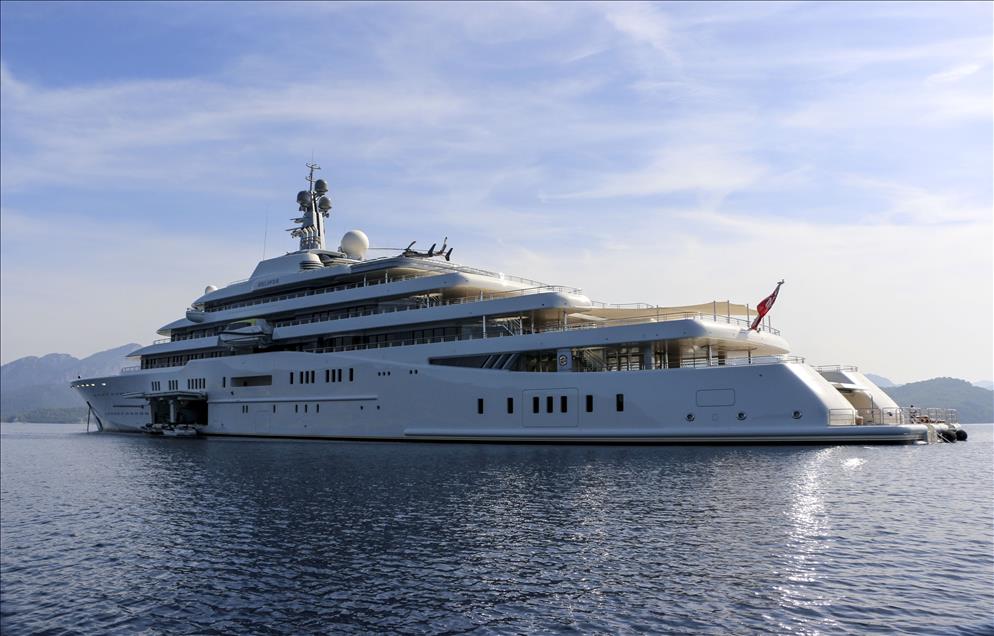
Ukrainian-Turkish relations
Nevertheless, the historic antagonism between the Turkic speaking Tatars in Crimea backed by Turkey and the Russians could escalate quickly. Consequently, Turkey is willing to utilize the neo-Ottoman discourse of being one of the ‘’guarantors’’ of peace in Crimea and Ukraine. Furthermore, Turkey plays a major military and political role as such “peace guarantor” in Syria, Cyprus and Libya. This is precisely the role that Turkey in the vain of its neo-Ottoman aspirations is trying to play in Crimea and Ukraine. Apart from the tight-military bilateral relations with Zelensky’s government in Kiev, Turkey has utilized the existence of the Tatar minority against Russian presence in the Crimean peninsula.
Recently, close advisors of Zelensky have met in Istanbul with members of the Turkish government. Among them were David Arakhamia, Mykhailo Podolyak and the Crimean Tatar leader in exile, Mustafa Dzhemilev, former Soviet dissident and member of the Ukrainian Parliament until 2019. Today, many Crimean Tatars live in Turkey and there is a policy of promoting pan-Turkic ideals in Crimea. Moreover, Erdogan has intended to mediate between Russia and Dzhemilev regarding the Tatar minority in Crimea.
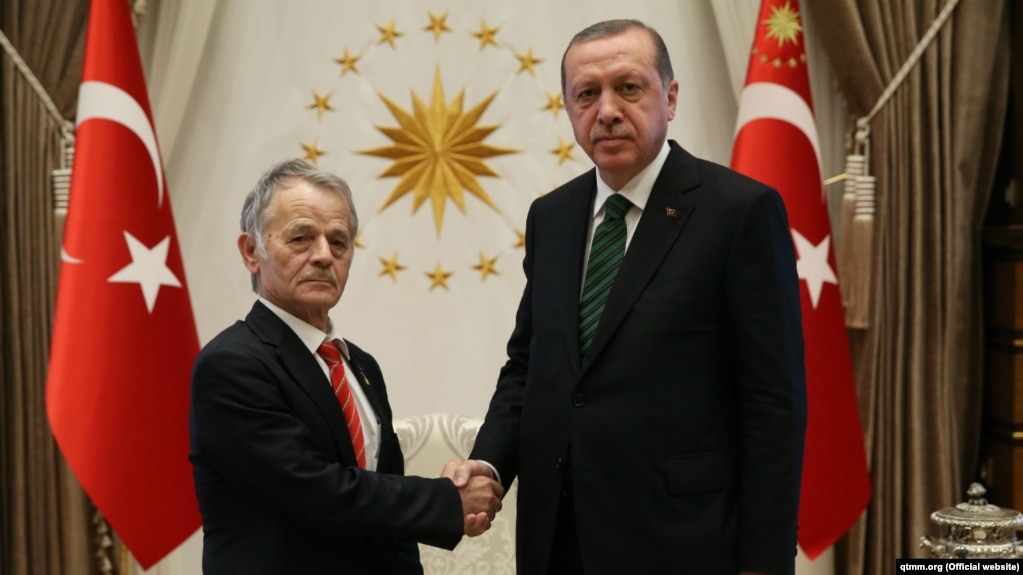
Additionally, Mikhail Pontoliak, the Ukrainian official who led the country’s negotiations with Russia last week in Istanbul, uploaded a photo on social media, in which he is with Haluk Bayraktar, the CEO of the Turkish drone company Baykar.
His brother, Selcuk Bayraktar, is the chief technical officer of the Turkish company and also the son-in-law of President Reccep Tayyip Erdogan. Bayraktar has written in the past that he is one of the few people who benefited from Turkey’s removal from the F-35 program. It now appears to be benefiting from the war in Ukraine as a new Ankara-Kiev drone deal was recently announced. A photo in the social media was posted by Podolyak which shows the level of commitment between Turkish and Ukrainian officials.
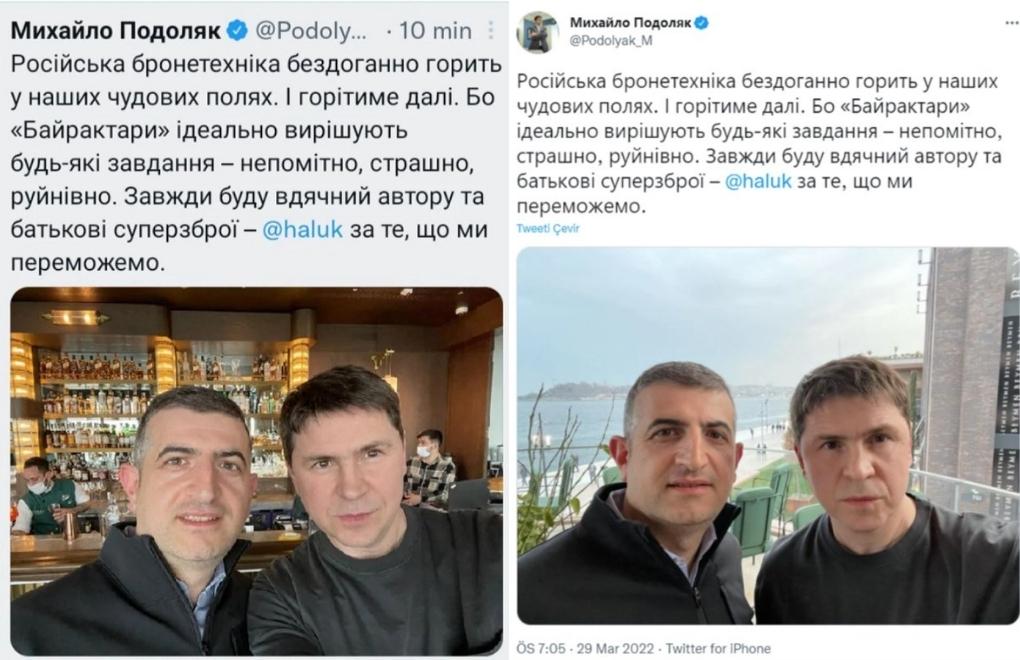
The photo in Podolyak’s profile was accompanied by the following statement: “Russia’s armor burns perfectly in our beautiful fields. And it will continue to burn, as the Bayraktar perform perfectly on every task – scary, destructive,” Pontoliak said in the caption accompanying the photo. “I will always be grateful to the creator and father of super-weapons. For our victory.” Nevertheless, the photo was taken down soon after.
During the first months of 2022 Turkey’s arms exports to Ukraine have risen to 5.491% compared to last year, reaching nearly 59 million USD. By now, more than 20 TB2 drones have been purchased. Additionally, Ukraine uses other equipment from Turkey that is, difficult to purchase from other NATO countries such as vests and helmets and radio equipment. Nevertheless, Turkey for the moment hangs on a diplomatic balance favorable to Ukraine but without dismissing the diplomatic ties with Russia. Certainly, Turkey is one of the most active NATO countries concerning Ukraine at a diplomatic, economic, military and political level. All this, of course, within the limits of NATO. A strong Turkey with a neo-Ottoman discourse seems to be on the rise and accepted by the US government, given the warm dialogue between President Joe Biden and President Erdogan.
*She is a historian and independent researcher concerning political developments in the wider region of Eurasia.